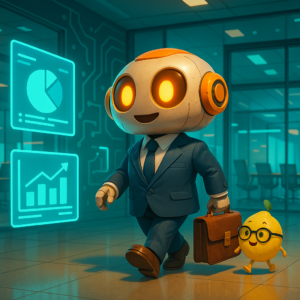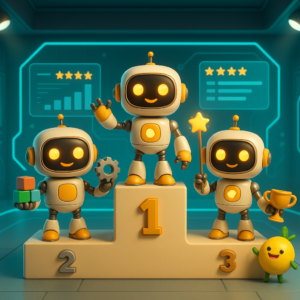The challenges facing our planet are immense, from climate change and resource depletion to biodiversity loss. As we seek innovative solutions, Artificial Intelligence (AI) is emerging as a powerful force for good, offering unprecedented capabilities to monitor, analyze, and address environmental issues. From optimizing energy consumption to predicting natural disasters, AI is instrumental in paving the way for a more sustainable future. AI and accelerated computing are being used to help solve the world’s greatest challenges, including those impacting our planet.
The Environmental Imperative and AI’s Role
The urgency to address environmental concerns is clear. 2024 is on track to be the hottest year on record, and extreme weather events are becoming more frequent and intense. The world is behind on addressing climate change, and data and AI can be applied to many areas to help supercharge sustainability efforts. AI’s ability to process vast datasets, identify complex patterns, and optimize systems makes it uniquely suited to tackle these multifaceted environmental challenges.
Key Areas Where AI is Driving Sustainability
AI’s impact on sustainability is broad and transformative. Here are some critical areas:
1. Climate Change Monitoring and Prediction
AI algorithms can analyze vast amounts of climate data from satellites, sensors, and historical records to:
-
Predict Climate Patterns: Improve forecasting for extreme weather events, allowing for better preparedness and mitigation.
-
Monitor Deforestation and Land Use: Track changes in land cover and identify areas under environmental stress.
-
Analyze Greenhouse Gas Emissions: Pinpoint sources of emissions and measure their impact with greater accuracy.
This enhanced understanding is crucial for developing effective climate action strategies. Extreme weather was rampant and increasing need for solutions to combat rising temperatures and their consequences.
2. Resource Optimization and Efficiency
AI can significantly reduce waste and improve the efficiency of resource utilization across industries:
-
Smart Grids: Optimize energy distribution, reduce waste, and integrate renewable energy sources more effectively.
-
Precision Agriculture: AI-powered systems can analyze soil conditions, weather patterns, and crop health to optimize water, fertilizer, and pesticide usage, leading to higher yields with less environmental impact.
-
Supply Chain Efficiency: AI can optimize logistics, reduce transportation emissions, and improve inventory management to minimize waste.
3. Developing Eco-Friendly Materials and Solutions
AI accelerates research and development for sustainable alternatives:
-
Material Science: AI can analyze and design new materials that are more sustainable, biodegradable, or energy-efficient.
-
Waste Management: AI-powered sorting systems can improve recycling rates and identify new ways to repurpose waste.
-
Pollution Control: AI can help detect and track sources of pollution in air and water, enabling faster response and remediation.
4. Biodiversity Conservation
AI is proving invaluable in protecting endangered species and ecosystems:
-
Wildlife Monitoring: AI can analyze camera trap data, drone imagery, and acoustic sensors to track animal populations, identify poachers, and monitor habitat health.
-
Ecosystem Health Assessment: AI can process sensor data to understand the health of forests, coral reefs, and other vital ecosystems.
On the broader environmental and human impact of intelligence, AI can be directed towards more conscious and beneficial outcomes for the planet.
The Business Opportunity in AI for Sustainability
Embracing AI for sustainability is not just an environmental responsibility; it presents significant business opportunities:
-
Reduced Operational Costs: Optimizing resource usage (energy, water, materials) directly lowers operational expenses.
-
Enhanced Brand Reputation: Demonstrating a commitment to sustainability can attract environmentally conscious customers and investors.
-
Innovation and New Markets: Developing AI-driven eco-friendly products and services opens up new revenue streams.
-
Regulatory Compliance: AI can help businesses meet increasingly stringent environmental regulations and reporting requirements.
Technology and data can uncover new opportunities that will help advance sustainability initiatives across the globe.
Leveraging AI for Sustainability with LaunchLemonade
While LaunchLemonade’s core focus is on business automation and efficiency, the principles translate directly to sustainability efforts. You can build AI agents to monitor resource usage within your operations, automate reporting on environmental impact, or even help manage internal sustainability initiatives.
Building Your Green AI Initiatives:
-
Identify Target Areas: Determine where AI can most effectively impact your business’s environmental footprint (e.g., energy consumption, waste reduction).
-
Gather Relevant Data: Collect data on energy bills, waste output, resource usage, or operational emissions.
-
Create Specific AI Agents: Build agents on LaunchLemonade to analyze this data, monitor trends, identify anomalies, and suggest optimization strategies.
-
Implement Automated Reporting: Use AI to generate regular reports on your sustainability performance, helping track progress and identify areas for improvement.
By harnessing the power of AI, businesses can become part of the solution, driving both environmental progress and operational excellence.
Ready to make your business more sustainable with AI?
Explore how LaunchLemonade can help you build AI solutions for a greener future.






